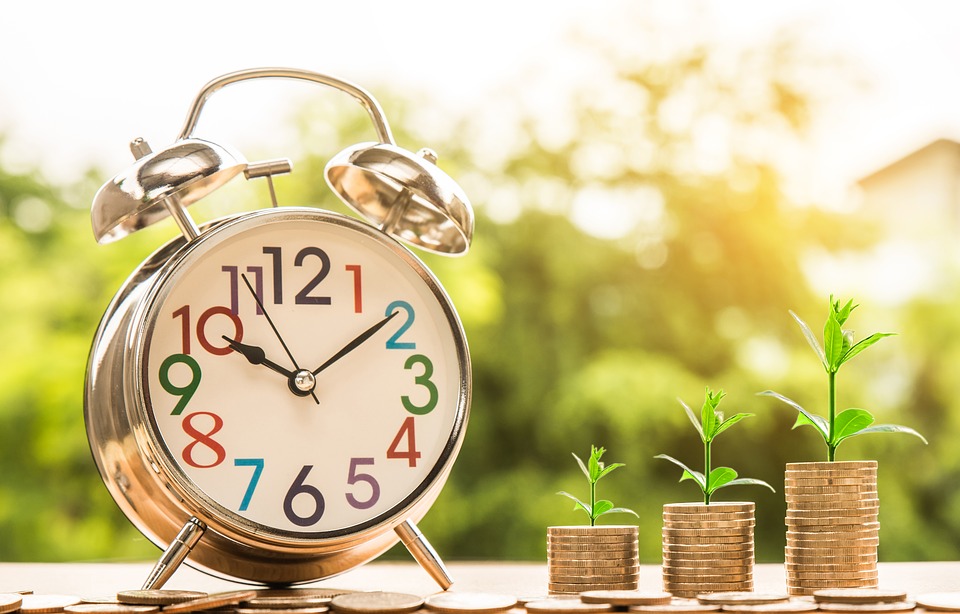It’s time to get serious about your financial future. If you’re not the best with money, you rarely have anything left at the end of the month, and you haven’t even considered investing, then don’t panic. There are so many ways you can prepare for your financial future, and it’s not as scary as it sounds. Many people think that all of that can wait until you’re older when you have less on your plate, or you’re in a better financial situation, but that’s not the case. There is no perfect time to start planning your finances, but the sooner, the better. Whether you’re 21 or 51, there are some steps you can take to make sure that your future finances will be in great shape.First of all, you need to think about what you want to accomplish regarding your finances. Do you want to have paid off all of your debts by 50? Do you want to own your own house? Do you want to retire by the time you are 65? Do you want to take a year to travel the world? Do you want to earn income from rental properties? There are so many options available to you, so try and think about what is most important to you and set yourself some realistic financial goals for the future. Learning how to get serious about your financial future does take time, dedication and hard work but I promise that the rewards are all worth it. From learning how to ‘save money’ more effectively’ to recording expenses to keep track of what you have been spending money on each month, here are some tips that will help you become more financially proficient.

Learn How To Save And Spend Your Money Wisely
Start saving, today. Saving is one of the best things you can do for your financial future, and even if things are tight, you need to consider how important it is to have an emergency fund. Having a savings account with enough money for a couple of months living is a lifeline in case of any emergencies.To build up your savings, you need to make saving money part of your monthly routine. One good way to do this is to set up a standing order just after you get paid (or just once a month if you are freelance or receive an allowance) which will go straight into your savings account. By setting up a standing order, you don’t have to think about it and will be saved automatically. If you are struggling one month, it is okay to use some of your savings, check the terms of your savings account and make sure there are no fees. Try and carry on with the standing order every month and your money will soon grow. It is worth setting the amount for just a little over what you think you can afford. Some people choose to save 10% of their income; some people save £100 a month — try and find an amount which will add up significantly and not put too much strain on your finances. After all if you are like me and don’t earn much each month, learning how to save can be difficult but trust me there are so many expenses that you can cut down on such as ‘hot chocolates’ when out, which help you save even a little bit of money each year.

If you already have a considerable amount saved up or you have inherited a lump sum, then you want to start making your money work for you. Because of inflation, it is always worth considering investing some of your savings. Inflation is the increase in price that occurs every year — normally this is around the 3% mark, and it means that if you had ten pounds in 1990, you could buy far more for your money compared with what you could now buy with the same ten-pound note. Assets, like property, will increase in value in line with inflation, but your cash savings won’t increase in value unless you have a higher interest rate than the rate of inflation. Interest rates on savings accounts are incredibly low at the moment, so it is worth considering investing.
Property is an asset that continues to go up in value over time, and you can earn rental income too. Property investment experts RW Invest offer properties with rental yields up to 9%, meaning that your investment should pay for itself, as well as be worth far more when it comes to selling the property in the future.
Record Your Expenses
One of the most helpful ways to keep track of my spending which enables me to plan for my financial future is through an ‘expense sheet’ which chronicles my incomings and outgoings each month, to see whether there are any expenses I can reduce in order to save more money each month. While I use an excel spreadsheet to list everything I have spent money on, companies that owe me money and collaborations waiting for approval, you might choose a different platform to track your expenses such as a word document or an online service, but the choice is entirely up to you. Another good idea might be to list your ‘expense sheet’ in category order, which is something I do for other databases that I have created. For example you could keep it simple by separating expenses into ‘luxury’ and necessity columns’ while a more comprehensive list would be to list the genres of the expenses. This can include groceries, work, travel, food and so much more. I find that my expense sheet allows me to be more financially mindful and enables me to recognize patterns in spending habits and see where I need to cut down for a better peace of mind.
Stick To A Monthly Budget

The ‘expense sheet’ will allow you to have a rough idea of how much money you spend each month so once you have this sorted, you will be able to to organize your recorded expenses into a workable budget. Your budget should outline how your expenses measure up to your income—so you can plan your spending and limit overspending. In addition to your monthly expenses, be sure to factor in expenses that occur regularly but not every month, such as ‘blog expenses’ like domain renewal, website costs and anything else, as it is important to have pennies for a rainy day. After all you never know when you might need to factor in extra costs as I have learned many times, because not preparing for the worst can leave you feeling shortchanged. Of course if you go over or under the budget- provided it is not by too much- don’t fret as each month, especially if you are a freelancer like myself can incur different costs, so just try and stick to a rough budget.
Decide On Your Priorities
When it comes to getting serious about your financial future, learning or deciding what your priorities are will enable you to get wise about money and fast. After your expenses and income, your goals are likely to have the biggest impact on how you allocate your savings. For example if your aim is to go on the honeymoon of your dreams, you might decide to cut down on wedding costs to have an intimate, romantic, dream honeymoon with your love, while saving up for a computer might involve you picking up extra shifts and work in order to be able to save up enough money to buy your laptop/ computer. For me I would love to be able to afford my dream camera with all the essentials that it needs, even though it costs more than I earn in six months, but by saving up a little money each month, whether it takes 5 years or two, eventually by focusing on my priorities I will be able to afford the camera in the near future. So always be sure to remember long-term goals—it’s important that planning for something in your future-whether it be a wedding or a house- doesn’t take a back seat to shorter-term needs, because otherwise you might lose sight of what you were saving money for in the first place. In other words any dream or goal that you want to fufil must enable you to learn how to prioritize your saving goals so that you have a clear vision of where and when you need to start saving money.

Do You Have Any Tips On How To Save For Your Future More Effectively?
*Disclaimer
Please note this is a collaborative post but all thoughts are my own and are not affected by monetary compensation.
Leave a Reply